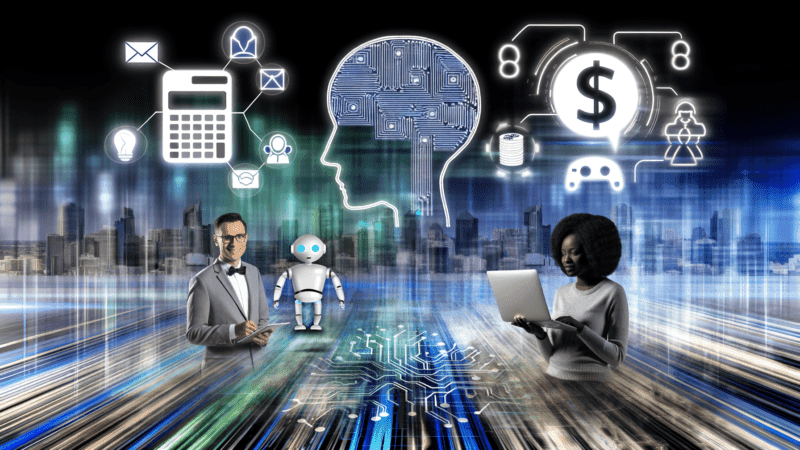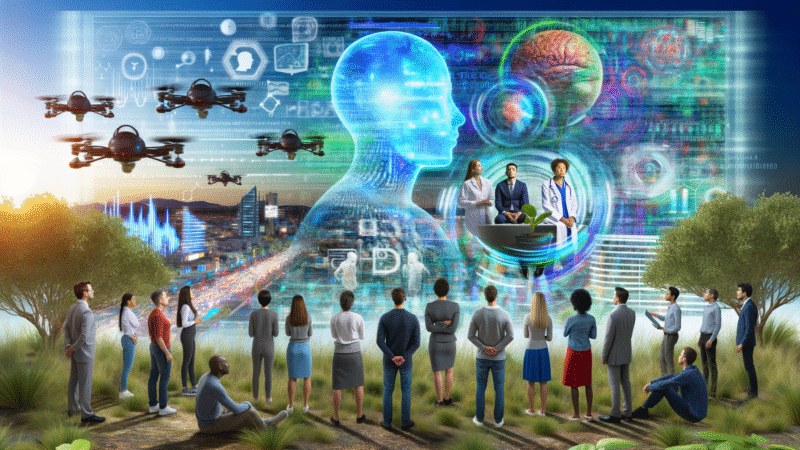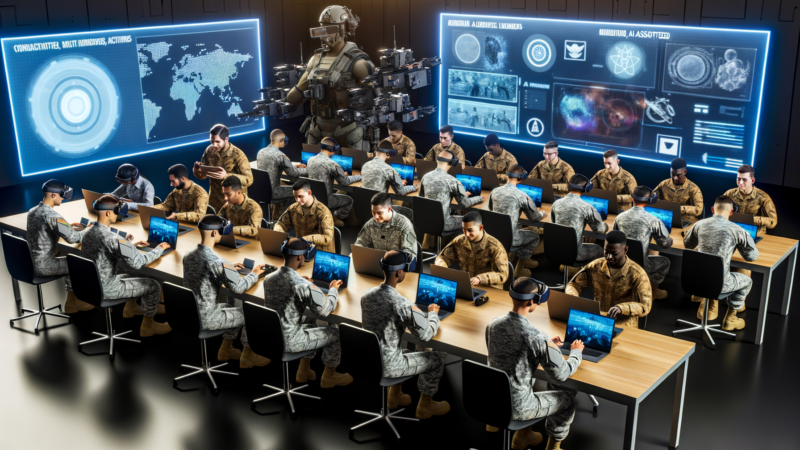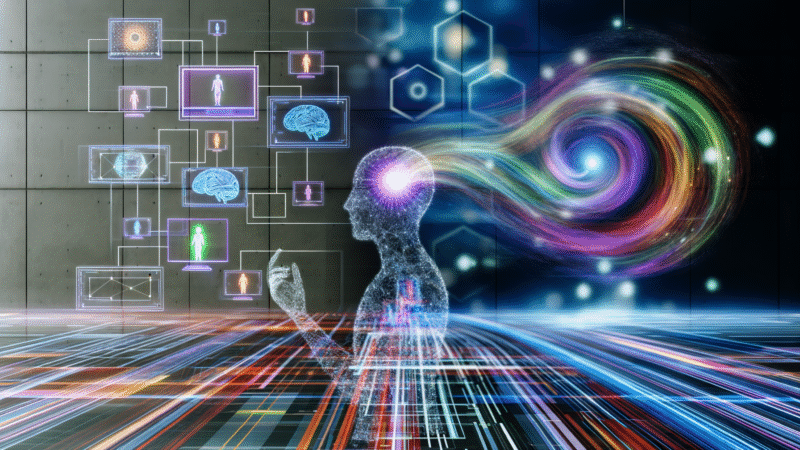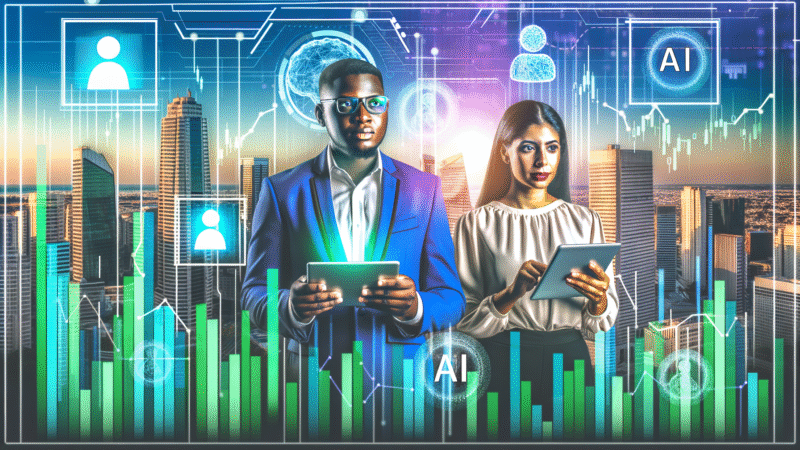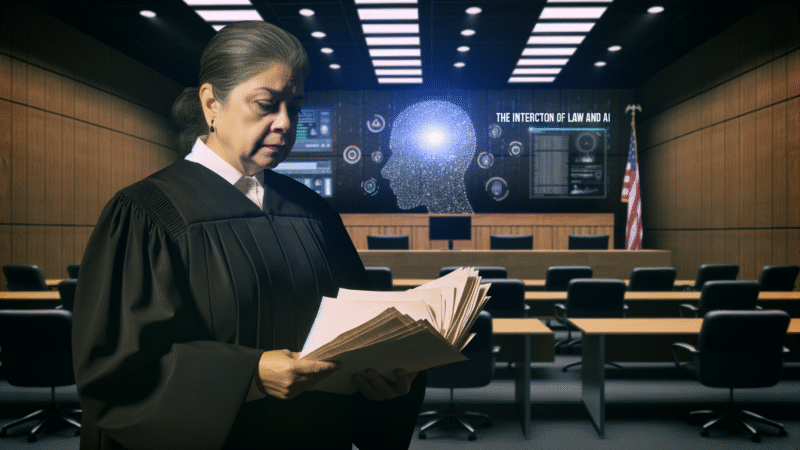Learning with Artificial Intelligence: Opportunities and the Future of Education
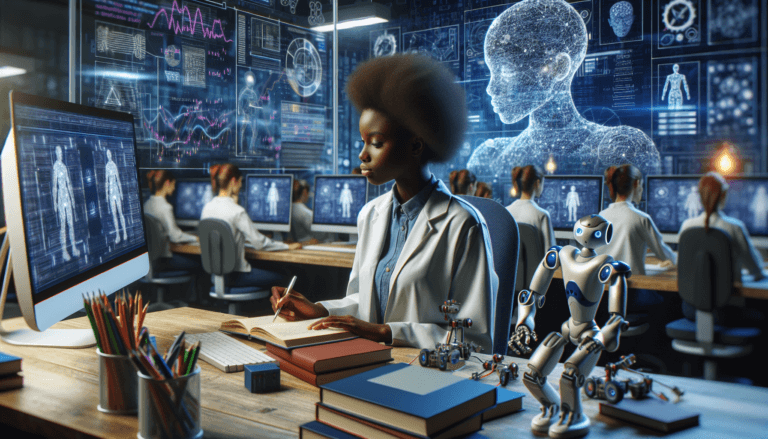
Learning with Artificial Intelligence: Opportunities and the Future of Education
Artificial Intelligence (AI) is changing the world around us, and its impact on education is becoming increasingly noticeable. Learning with artificial intelligence offers numerous new opportunities that make the process of acquiring knowledge simpler, more efficient, and more engaging. In this article, we will explore how AI is transforming the education system and provide useful resources and links for a deeper understanding of this technology.
Opportunities of Artificial Intelligence in Education
Artificial Intelligence and the Learning of the Future
One of the key opportunities offered by AI is adaptive learning. Using machine learning and big data analysis, AI systems can adjust educational programs to meet the individual needs of students. This makes learning more personalized and motivates students to master the material at their own pace.
This approach is at the core of the concept of “learning of the future,” where every student receives the best conditions for their educational process. AI technologies help create individualized development paths, take into account each student’s strengths and weaknesses, and provide recommendations that help improve results.
For example, many schools and educational platforms have begun to implement adaptive learning systems based on AI. These systems track each student’s progress and offer additional materials if difficulties in understanding arise. More about such approaches can be found on Neyrotex and other resources.
AI in Educational Applications and Platforms
AI has also found its application in the development of educational applications and platforms that allow students to gain knowledge remotely. Many well-known platforms, such as Coursera and Udemy, have implemented AI to make learning more convenient and accessible.
On Neyrotex, you can learn more about how AI is used to create educational applications that help students learn effectively.
Virtual Tutors and Assistants
One of the significant achievements in the field of artificial intelligence is virtual tutors. They act as assistants for students, answering questions and helping with learning at any time of the day. This approach is especially useful for students who engage in self-study and may face challenges while learning new topics.
Virtual assistants significantly improve the accessibility of education and help solve problems that previously required the involvement of a real teacher. More detailed information about virtual tutors can be found on Neyrotex.
Automating the Knowledge Assessment Process
One of the important functions of AI is automated test and assignment grading. Learning with artificial intelligence allows instant test result evaluation, saving time and effort for both students and teachers. This approach allows teachers to spend more time on complex issues and individual work with students.
Platforms such as Khan Academy use artificial intelligence to automate test grading and provide feedback to students, which speeds up the learning process and improves outcomes.
Future Learning with Artificial Intelligence
Individual Learning Paths
AI makes it possible to create unique learning paths for each student, taking into account their characteristics and needs. This approach allows students to receive support exactly where it is needed, significantly speeding up the learning process and increasing efficiency. On Neyrotex, you can learn how AI helps build individual educational plans.
Education for All: Inclusiveness and Accessibility
Learning with artificial intelligence makes educational resources accessible to everyone, including people with disabilities. For example, AI systems can automate the creation of subtitles and translations into various languages, making educational content accessible to people with hearing impairments or those who do not speak the language fluently.
Programs like Duolingo use artificial intelligence to help users learn new languages interactively, making the process enjoyable and accessible to all.
Personalized Learning with Artificial Intelligence
Machine Learning for Educational Data Analysis
AI uses machine learning to analyze student performance data. Such analysis helps identify students’ weaknesses and strengths, which, in turn, helps teachers adjust their programs and approaches. On Neyrotex, you will find information on how such systems can be useful for improving the learning process.
Prediction and Recommendations
AI can predict potential difficulties for students and provide recommendations that help avoid them. For example, based on current performance data, AI can suggest additional study materials or change the sequence of topics to help the student better understand the subject.
The Role of AI in Creating Educational Materials
AI is also used to create educational materials such as tests, assignments, and video lessons. Machine learning systems allow content to be generated that best matches the level and needs of students. This is especially useful in conditions of limited teacher time and a large number of students.
Platforms such as Edmodo use artificial intelligence to automatically create assignments and tests for students, making lesson preparation easier and more efficient.
The Future of Learning with Artificial Intelligence
Blended Learning
The future of education includes blended learning, where traditional methods are combined with digital technologies and AI. This approach allows students to choose the most convenient way of acquiring knowledge and use AI capabilities for better material assimilation. More about future trends in education can be read on Neyrotex.
Lifelong Learning and Reskilling
AI systems also play an important role in reskilling and lifelong learning. Modern technologies enable people to quickly acquire new professions and gain the up-to-date knowledge necessary for a successful career. Programs like LinkedIn Learning use AI to select courses and facilitate learning, making the retraining process easier and more effective.
Examples of AI Use in Education
There are many examples of the successful use of AI in the educational field. Platforms like FutureLearn actively apply artificial intelligence for personalized learning, student data analysis, and educational process automation. Learn more about examples of AI implementation on Neyrotex.
Conclusion
Artificial intelligence opens new horizons for the education system, making learning more accessible, adaptive, and effective. The opportunities of artificial intelligence in education improve the learning process, providing students and teachers with the necessary tools for successful knowledge acquisition.
Learning with artificial intelligence is becoming increasingly relevant and important for preparing future generations. Individual learning paths, automated learning processes, and virtual assistants—all these technologies contribute to creating the “learning of the future,” where each student can fully realize their potential.
Learn more about modern technologies and the application of artificial intelligence in education on Neyrotex.


